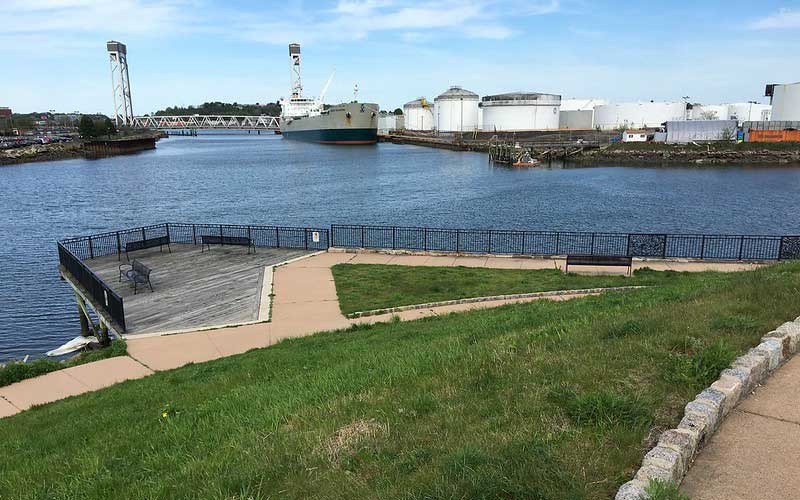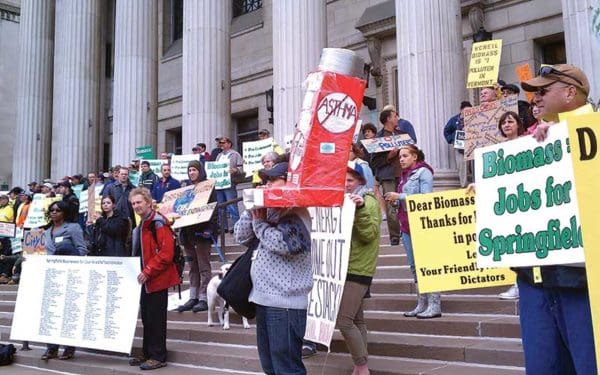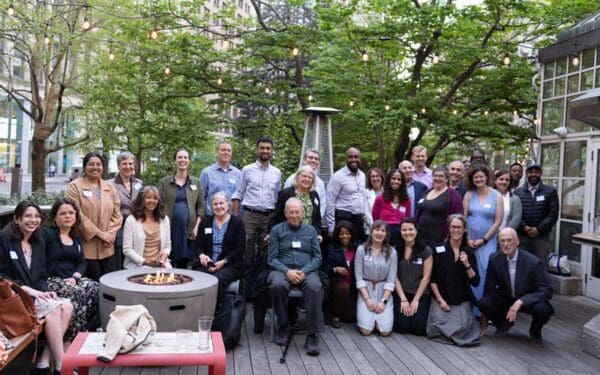
Eversource wants to build a new substation in East Boston's Eagle Hill neighborhood. Local residents – many of whom have limited proficiency in English –oppose the plan, but the State has made it hard for them to take part in the public process by refusing to provide adequate translation services at meetings. Photo: Ed Lyons, CC BY-NA 2.0
Despite widespread opposition from residents, Eversource is plowing ahead with its plan to build a massive electrical substation in East Boston on the banks of Chelsea Creek. The site sits feet away from a small nature preserve, a children’s playground, and the water itself.
Residents have frequently expressed concerns about the safety of building this project on a site often inundated by water. What’s more, residents with limited English abilities have been repeatedly left out of the conversation about this complex, flawed, and unwarranted project.
That’s why CLF and several of our partners have sent a formal Title VI complaint to the EPA against Massachusetts energy agencies. Officials repeatedly failed to provide proper translation and interpretation services in proceedings regarding the project, which would have catastrophic implications for low-income communities of color in East Boston and Chelsea. State officials treated demands for interpretation as disruptive, effectively shutting out participation from the area’s many Spanish-speaking residents.
This is unacceptable, and leaders need to be held responsible.
Environmental Justice Community Doesn’t Need This Substation
East Boston’s Eagle Hill is a quiet neighborhood. To the north, this mostly residential area borders Chelsea Creek. The rolling hills of the Condor Street Urban Wild offer a view of the water, with tarp-covered piles of salt framing the far bank. Hazardous contaminants live in the ground below, capped with layers of earth and greenery – a pristine image only achieved through the years-long efforts of neighborhood activists.
Those who live nearby know the creek already swells during storms and heavy rainfall. Residents question the safety of living next to an electrical substation built on a site subject to inundation. But too often, they have been unable to meaningfully influence the planning, siting, and regulatory processes that place hazards near their homes.
Already Complicated Process Was Made Incomprehensible to Many Residents
The siting process is already a complicated one for people who spend their days and nights working and caring for their families rather than studying siting law. Well-resourced utilities dictate the terms of projects and have the time, money, and expertise to move them forward. Language barriers make meaningful public participation even harder – as does the lack of regard for residents with limited English capacity.
East Boston is a community of immigrants and their descendants. Over half of its households speak Spanish at home. Across the Chelsea Creek, around 70 percent of Chelsea residents speak a non-English language.
By law, decision-making for siting significant new energy infrastructure mandates public participation. The Siting Board and its parent agency, the Executive Office of Energy and Environmental Affairs, are legally required to ensure that limited English speakers can access information, services, programs, and opportunities. Yet, in its approval process for the substation, the Board did not fulfill its obligations, consistently failing to provide adequate interpretation services. As a result, Spanish-speaking residents have been systematically left out of the process, rendering impossible meaningful public engagement.
Hearings regarding the project were poorly advertised, which dampened resident turnout. Translation services were rarely provided and were sometimes deemed “too disruptive to the proceedings” by energy officials. When translations were provided, the Spanish version was often misleading or lacking key details.
Community members fluent in both English and Spanish pointed out these inaccuracies. Nothing was done to correct them.
Language Justice is Critical to a Fair Public Process
These failures by the Siting Board to properly include Chelsea and East Boston residents cannot be dealt with on a one-off basis, where interpretation is provided only following special petition or written complaints. The demand for accurate and reliable interpretation is part of a more significant issue of language accessibility within the Commonwealth, where 149,000 households statewide have limited English abilities, and around 1.5 million individuals speak a language other than English at home.
Language justice is essential to environmental and climate justice. All residents, regardless of native language, not only deserve to live, work, and play in environments free from risk and hazard, but also to have access to public proceedings and the information resulting from them. For communities like East Boston and Chelsea, where the land and communities already bear both pollution burdens and climate risks, the need is especially vital.
We will continue this fight to make sure that State energy officials are held responsible for their actions. No one should be shut out of a process that could have catastrophic implications for their neighborhood simply because of the language they speak. It’s not only illegal, it’s just plain wrong.



